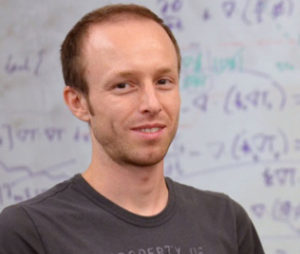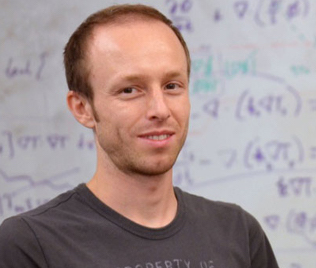Today ACM announced the recipients of the 2016 ACM/IEEE George Michael Memorial HPC Fellowships. The fellowship honors exceptional PhD students throughout the world whose research focus is on high performance computing applications, networking, storage or large-scale data analytics using the most powerful computers that are currently available.
2016 Recipients:
-

Johann Rudi of The Institute for Computational Engineering and Sciences (The University of Texas at Austin)
Johann Rudi of The Institute for Computational Engineering and Sciences (The University of Texas at Austin). Rudi is recognized for his work on a recent project, “Extreme-Scale Implicit Solver for Nonlinear, Multiscale, and Heterogeneous Stokes Flow in the Earth’s Mantle,” while Huebl is recognized for his work, “Scalable, Many-core Particle-in-cell Algorithms to Simulate Next Generation Particle Accelerators and Corresponding Large-scale Data Analytics.” Johann Rudi’s recent research has focused on modeling, analysis and development of algorithms for studying the earth’s mantle convection by means of large-scale simulations on high-performance computers. Mantle convection is the fundamental physical process within the earth’s interior responsible for the thermal and geological evolution of the planet, including plate tectonics. Rudi, along with colleagues from Switzerland and the United States, presented a paper on mantle convection at SC15, the International Conference for High Performance Computing, that was awarded the ACM Gordon Bell Prize. Rudi and his team developed new computational methods that are capable of processing difficult problems based on partial differential equations, such as mantle convection, with optimal algorithmic performance at extreme scales.
-

Axel Hübl, Helmholtz-Zentrum Dresden-Rossendorf
Axel Hübl from the Technical University of Dresden is a computational physicist who specializes in next-generation, laser plasma-based particle accelerators. Huebl and others reinvented the particle-in-cell algorithm to simulate plasma-physics with 3D simulations of unprecedented detail on leadership-scale many-core supercomputers such as Titan (ORNL). Through this line of research, Huebl also derives models to understand and predict promising regimes for applications such as radiation therapy of cancer with laser-driven ion beams. Interacting closely with experimental scientists, their simulations are showing that plasma-based particle accelerators may yield numerous scientific advances in industrial and medical applications. Huebl was part of a team that were Gordon-Bell prize finalists at SC13.
The GMM Fellowship is endowed in memory of George Michael, one of the founding fathers of the SC Conference series. The Fellowship includes a $5,000 honorarium and travel expenses to attend SC16 in Salt Lake City on November 17, where the GMM Fellowships will be formally presented.




